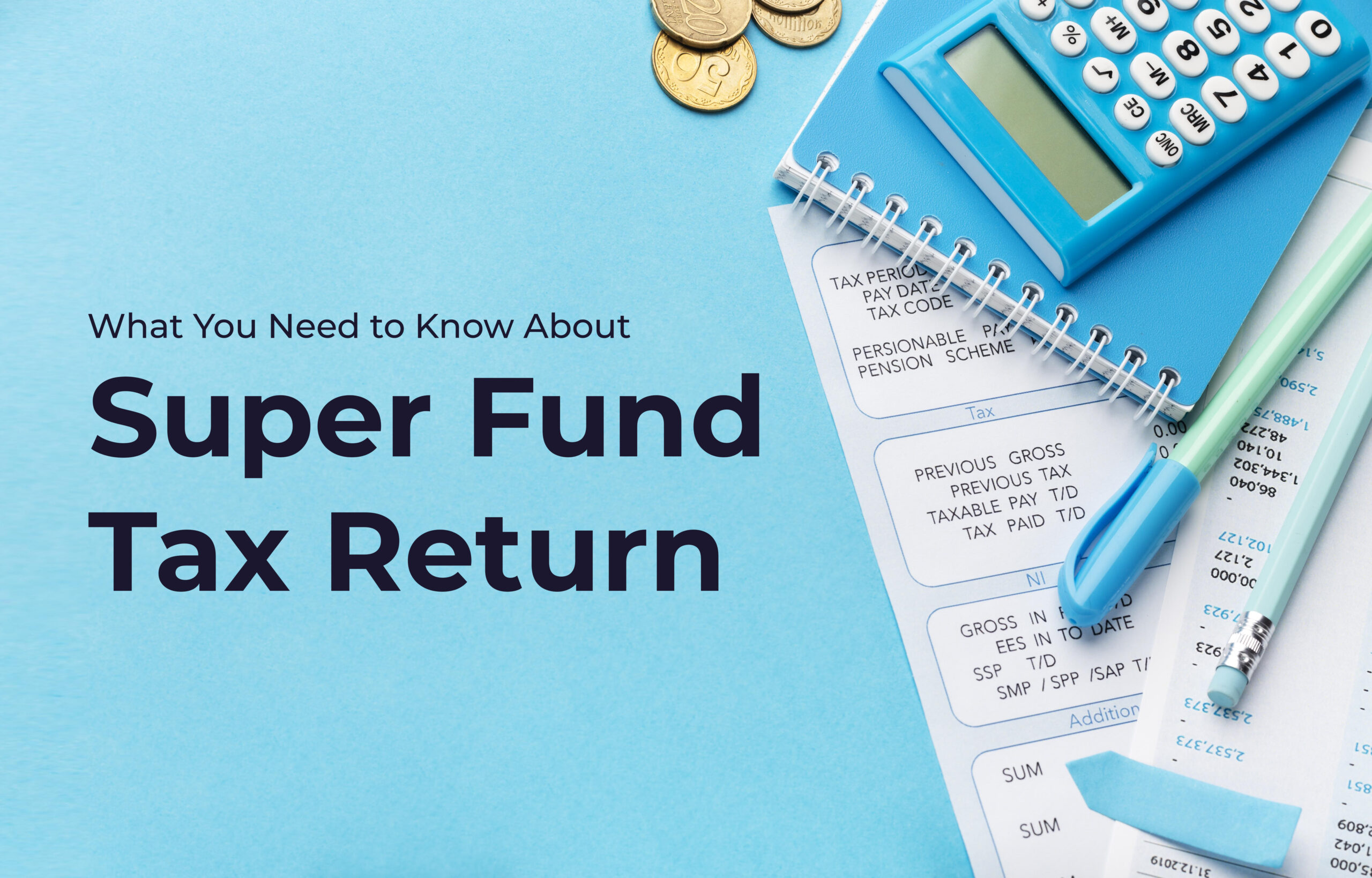In Australia, a super fund is a retirement savings structure that comes with strict compliance obligations. If you manage a self-managed super fund (SMSF), you’re not just saving for retirement; you’re also responsible for lodging an annual super fund tax return. The super fund tax return outlines the fund’s financial activity and compliance for the ATO, ensuring it qualifies for concessional tax treatment.
Whether you’re a trustee, thinking of setting up an SMSF, or simply want to understand your obligations, knowing how the tax return process works can help you avoid penalties and protect your fund’s status. This article breaks down everything you need to know in clear, practical terms.
Who Must Lodge It?
Lodging a super fund tax return is a legal requirement for all superannuation funds operating in Australia. This includes both Self-Managed Super Funds (SMSFs) and funds regulated by the Australian Prudential Regulation Authority (APRA).
For SMSFs, the responsibility falls squarely on the trustees. Whether you’re an individual trustee or part of a corporate trustee structure, you’re legally accountable for ensuring the return is completed accurately and lodged on time each year. Failing to do so can lead to financial penalties and, in serious cases, the loss of your fund’s complying status.
APRA-regulated funds, such as retail and industry super funds, also have to lodge annual returns. In these cases, the fund’s trustee, typically a professional body or institution, handles the lodgement as part of its overall compliance responsibilities.
Super Fund Tax Return Breakdown:
It captures a detailed snapshot of the fund’s financial activity and compliance for the financial year. It’s more than just a tax form; it’s a comprehensive report that the ATO uses to assess whether the fund is operating within the rules and paying the correct amount of tax. Here’s what it includes:
- Member Contributions: All contributions made to the fund, both concessional (before-tax, such as employer or salary-sacrificed contributions) and non-concessional (after-tax), must be reported. Accurate recording ensures compliance with contribution caps and affects tax obligations for both the fund and its members.
- Investment Income: This covers all income earned by the fund’s investments, including interest, dividends, rental income, and distributions from managed funds. The return must reflect the full range of the fund’s earnings to determine its assessable income.
- Deductions and Expenses: Operating costs like accounting fees, audit charges, investment management fees and insurance premiums (if paid by the fund) are included. These allowable deductions help reduce the fund’s taxable income.
- Capital Gains and Losses: If the fund sold any assets during the year, like shares or property, it must report any capital gains or losses. These are calculated and taxed accordingly, with some CGT discounts available if assets were held for over 12 months.
- Taxable Income of the Fund: After accounting for income, deductions and capital gains or losses, the fund’s taxable income is calculated.
Essential Rules Every SMSF Trustee Must Know:
The Australian Taxation Office (ATO) sets strict guidelines on how superannuation funds must report their financial activity and meet tax obligations. Here are the most important rules to be aware of:
-
Annual Lodgement Requirement
All super funds, including SMSFs and APRA-regulated funds, must lodge a tax return with the ATO every financial year, even if the fund had little or no activity. This return also includes regulatory information for SMSFs, making it a dual-purpose report.
-
Tax Rate on Fund Income
Complying super funds are generally taxed at a concessional rate of 15% on investment income and employer contributions. If the fund is in pension phase, some or all of its income may be tax-free. Non-compliant funds, however, can be taxed at 45%, which makes maintaining compliance critical.
-
Contribution Caps
There are strict limits on how much can be contributed to a super fund each year. Exceeding the concessional or non-concessional caps can result in extra tax liabilities and reporting requirements. Trustees must accurately report all member contributions on the tax return to ensure compliance.
-
Capital Gains Tax (CGT)
Super funds must report capital gains or losses on the sale of assets. If an asset is held for more than 12 months, the fund may be eligible for a one-third CGT discount, reducing the taxable gain. Accurate tracking of purchase dates and asset values is essential.
-
Deductible Expenses
Funds can claim deductions for expenses directly related to running and maintaining the fund. This includes audit fees, actuarial costs, investment advice and insurance premiums. Only legitimate, fund-related expenses should be claimed.
-
Audit Requirement
Every SMSF must be audited by an independent, ATO-approved auditor before the tax return can be lodged. The audit covers both financial and compliance aspects, and the outcome must be reported in the return.
-
Lodgement Deadlines
Most SMSFs have a deadline of 28 February following the end of the financial year if lodging through a tax agent, or 31 October if lodging directly. First-time SMSFs may have earlier deadlines. Missing the deadline can lead to penalties and increased scrutiny from the ATO.
Following these rules helps keep your fund in good standing and ensures you benefit from the concessional tax treatment that superannuation funds are designed to provide.
Lodgement Prep Checklist:
- Annual Financial Statements
- Profit and Loss Statement
- Balance Sheet
- Member statements (showing contributions, earnings, and closing balances)
- Independent Audit Report
- Every SMSF must be independently audited each year.
- The audit must be completed before the return is lodged.
- It covers both financial compliance and adherence to super laws.
- Actuarial Certificate (if applicable)
- Required if your SMSF is paying a pension and has both accumulation and pension phase members.
- It calculates the tax-exempt portion of income earned.
- Contribution and Rollover Records
- Detailed records of concessional and non-concessional contributions
- Any rollovers received from other super funds
- Confirmation of compliance with annual contribution caps
- Investment Records
- Details of income earned (e.g., dividends, interest, rent)
- Records of asset purchases and sales, including capital gains calculations
- Updated market valuations for all assets (as of 30 June)
- Expense Documentation
- Receipts and invoices for fund-related expenses such as:
- Audit and accounting fees
- Investment management fees
- Insurance premiums (if held within the fund)
- Trustee Declarations
- Ensure all trustees have signed the ATO’s trustee declaration form (especially for new SMSFs).
- This confirms understanding of their responsibilities.
- Electronic Service Address (ESA)
- For SMSFs receiving employer contributions through SuperStream, an active ESA is mandatory.
- Member TFNs and Personal Details
- Ensure Tax File Numbers (TFNs), dates of birth, and contact details are accurate and up to date.
SMSF Compliance Tips:
-
Use a Professional SMSF Accountant
SMSFs come with complex tax and compliance rules that can be difficult to navigate alone. Working with a specialist SMSF accountant helps ensure everything from financial reporting to lodgement is done right the first time. KANTax offers tailored SMSF accounting services in Australia, helping trustees meet their obligations, manage contributions, and avoid compliance pitfalls.
-
Keep Records Up to Date Year-Round
Good record-keeping is key. Maintain detailed records of all fund activity, member contributions, investment income, asset purchases, and expenses, as they happen. Keeping everything organised throughout the year saves time, reduces stress at tax time, and makes audits smoother.
-
Schedule the Audit Early
Every SMSF must be independently audited each year before the tax return can be lodged. Delaying the audit increases the risk of missing your lodgement deadline, especially during peak periods. Lock in your auditor early to allow time for any issues to be addressed.
-
Stay on Top of Contribution Caps
Monitor each member’s concessional and non-concessional contributions throughout the year. Exceeding the caps can lead to additional tax and reporting obligations. At KANTax, we help track contributions and flag potential problems before they cost you.
Conclusion:
However, managing a super fund tax return involves more than just submitting paperwork; it’s about protecting your fund’s status and staying within the ATO’s rules, while securing its concessional tax benefits. Understanding what’s required, keeping records in order, and meeting deadlines can save you from unnecessary stress and penalties. Staying compliant means being organised, informed and proactive throughout the year.
Choose KANTax’s SMSF accounting service to eliminate the guesswork and keep your fund fully compliant. Our comprehensive SMSF tax return services ensure that nothing slips through the cracks from start to finish. Contact us today!





